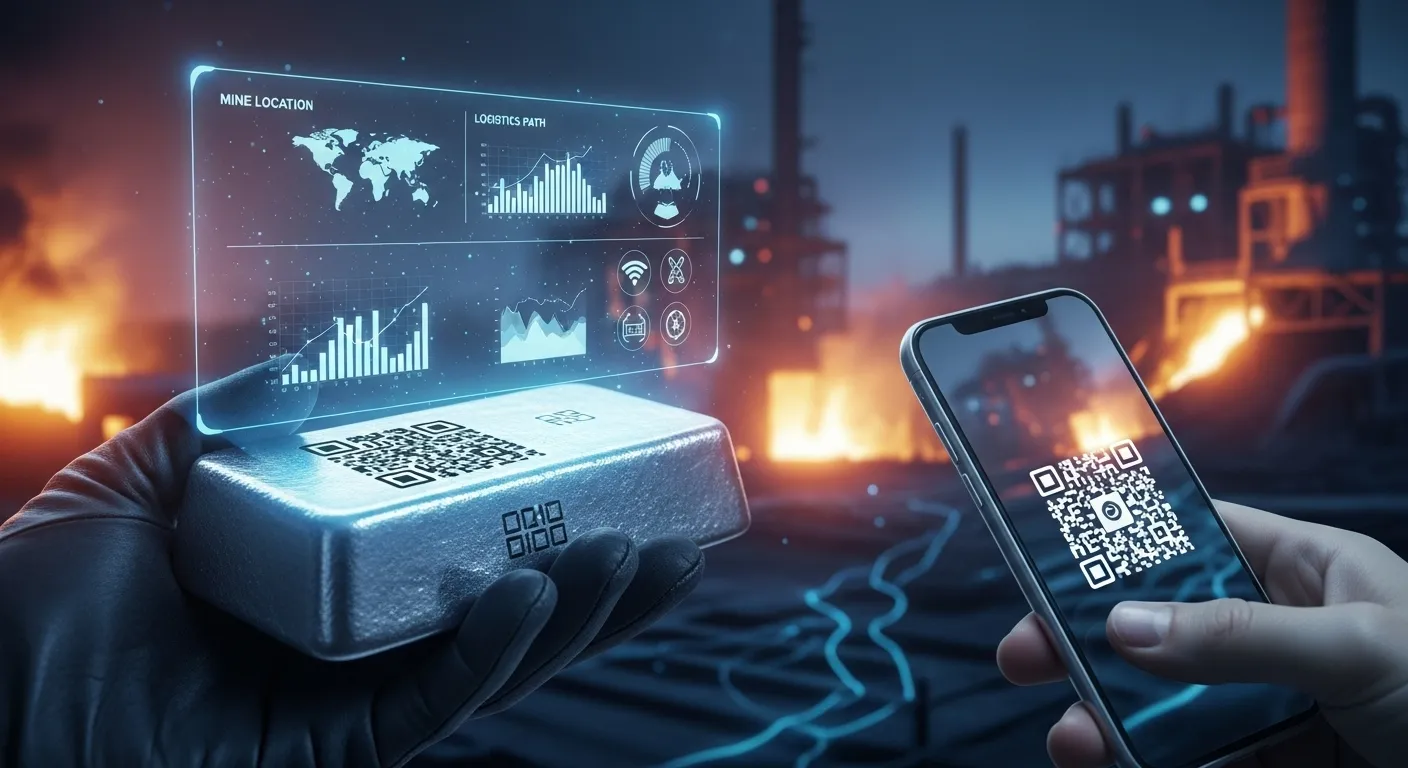Digital Stamp: When Metal Comes with a Passport

Norilsk Nickel has launched a digital metal tagging system, turning each unit of nickel into a traceable product with a verifiable origin story—from mine to customer, all accessible via a simple QR scan.
QR Code Meets Blockchain
In June, Norilsk Nickel publicly launched a system for end-to-end digital tagging of nickel batches. Each product unit receives a unique QR code, which, when scanned, grants customers instant access to a digital dossier. Whether it's a steel manufacturer in Latin America or a battery producer in Asia, users can now verify the metal’s full lifecycle.
The data includes mining site, extraction date, refining stages, quality certifications, and laboratory test results. It also covers logistics checkpoints and customs documentation, offering unparalleled transparency.

This isn’t an isolated pilot—it’s a signal to the entire Russian IT ecosystem. Blockchain or distributed ledger technologies (DLTs) are essential here—not for cryptocurrency, but for real-world industrial traceability. Secure, scalable, and efficient infrastructure is a must. For blockchain developers, it’s a massive opportunity.
From IoT to Supply Chain Visibility
The digital label is the final layer of an industrial IoT (IIoT) system. Its emergence depends on upstream data from smelters, conveyors, and quality control labs. Sensors collect and transmit this data, feeding edge-computing networks. IIoT developers are among the key beneficiaries of this growing demand.
The QR code acts as an entry point into a supplier’s digital ecosystem. Potential applications range from order automation and payment to additional service layers. This trend positions industrial B2B platforms as the next big thing in IT. Yet, the stakes are high. Tampering with data or hacking the system could cause major financial losses and reputational harm. That’s why demand for industrial cybersecurity is soaring. The IT sector now faces new, non-trivial challenges in securing critical infrastructure.

Beyond Compliance: Total Accountability
The real potential of this technology goes far beyond certificate verification. Its strongest value lies in combating counterfeit goods and gray imports. A digital trail is impossible to fake manually, and the mere act of implementation helps sanitize the market.
Widespread QR use could streamline customs processes. Automated data checks will accelerate clearance times, reducing paperwork and boosting delivery speeds. Removing the human factor minimizes errors, ensuring consistency and compliance.
With every stage traceable, it’s now possible to pinpoint bottlenecks, address defects, and enhance quality assurance across the board. In the long term, the idea of a premium-grade metal with a ‘perfect digital biography’ could redefine pricing and branding in the commodity market.

Toward a Russian Digital Standard
The transformation from raw material to certified value is now becoming tangible. And the concept is extendable—beyond metals to chemicals, fertilizers, even forestry products.
Norilsk Nickel’s digital tagging initiative is a blueprint for exporting Russian industrial IT solutions—spanning platforms, analytics, and cybersecurity—to the global resource and metals markets.
Verified tagging is a critical building block of Industry 4.0. Digitalization is no longer a buzzword; it’s the new language of trust in materials sourcing and trade.










































